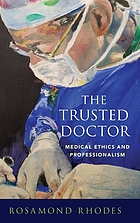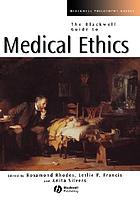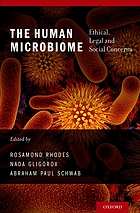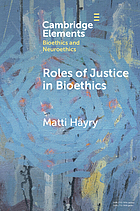Information Sources
Use the following suggested health sciences databases and journal indexes to search for articles and data.
‘Free access’ indicates that there is no cost to utilize an information portal, but it may link to both open-access (freely available) content and content that requires a paid subscription.
Gather background information and terminology for medical/health topics
- MedlinePlus : includes a medical encyclopedia
- UpToDate
- Centers for Disease Control (CDC)
- World Health Organization (WHO)
Bioethics Background Information
How to Find a Book at the Clarkson Libraries (video tutorial)
Searching and Browsing for Books: When looking for Clarkson library materials using the Search Discovery box [at the top of this page] it is helpful to do a keyword search for your subject. Following are some keywords that will be effective in finding material on bioethics. Using quotes around your keywords will keep them together in the search algorithm.
Try these keywords when searching for information about your topic:
| medical ethics | biomedical ethics | medical laws and legislation |
| human experimentation | clinical ethics | nursing ethics |
| cloning | euthanasia | right to die |
| transplantation organs | health care ethics | terminal care |
| bioethics | informed consent | applied ethics |
| assisted suicide | medical ethics |
Searching “subject headings” is better than key word searching, to get results that are sure to be about a particular subject. The subject headings are assigned to every book when it is cataloged, and describe, using a controlled set of terms, what the book is about. Below are some major subject headings relevant to bioethics:
| Agriculture — Moral and ethical aspects | Ethics, evolutionary | ||
| Animal rights | Laboratory animals — Moral and Ethical aspects | ||
| Animal welfare | Medical ethics | ||
| Bioethics | Resarch — Moral and ethical aspects | ||
| Biology — Social aspects | Science — Moral and ethical aspects | ||
| Environmental ethics | Science — social aspects |
MeSH Terms (Medical Subject Headings): Health Care Ethics / Ethics, Health Care / Biomedical Ethics / Ethics, Biomedical
These texts and ebooks are available to the Clarkson community.
In print at the Libraries:
- Routledge Encyclopedia of Philosophy (1998) 10 vols.
- Beacham’s Guide to Environmental Issues & Sources (1993) 5 vols.
- Encyclopedia of Bioethics (1978) 4 vols
- Medical Law and Ethics (2012)
Ebooks
The Trusted Doctor: Medical Ethics and Professionalism
Medical Ethics Today: The BMA’s Handbook of Ethics and Law
Bioethics: Issues and Dilemmas
Bioethics for Beginners: 60 Cases and Cautions from the Moral Frontier of Healthcare

Bioethical Decision Making in Nursing
The Blackwell Guide to Medical Ethics
The Human Microbiome: Ethical, Legal and Social Concerns
Even more ebooks on bioethics, medical ethics, and related topics
Open Access & Open Data Clarkson Library Guide
Provides a variety of links to Open Access journals, data tools, and repositories
Discovery of research (literature and data searches) can be done using these tools. Results may lead to both open-access (freely available) and content that requires a paid subscription:
- Google Scholar
Provides a simple way to broadly search for scholarly literature. From one place, you can search across many disciplines and sources: articles, theses, books, abstracts and court opinions, from academic publishers, professional societies, online repositories, universities and other web sites. Google Scholar helps you find relevant work across the world of scholarly research. - PubMed
Supports the search and retrieval of biomedical and life sciences literature with the aim of improving health–both globally and personally. Contains more than 34 million citations and abstracts of biomedical literature. It does not include full text journal article but links to the full text are often present when available from other sources. Developed and is maintained by the National Center for Biotechnology Information (NCBI), at the U.S. National Library of Medicine (NLM), located at the National Institutes of Health (NIH). - PubMed Central
A free full-text archive of biomedical and life sciences journal literature at the U.S. National Institutes of Health’s National Library of Medicine - Europe PMC
Provides comprehensive access to life sciences literature from trusted sources. Available to anyone, anywhere for free. Search and read 40.6 million publications, preprints and other documents enriched with links to supporting data, reviews, protocols, and other relevant resources. - Epistemonikos
A collaborative, multilingual database of health evidence. It is the largest source of systematic reviews relevant for health-decision making, and a large source of other types of scientific evidence.
Portals that offer online access to academic and professional peer-reviewed content for institutions in developing countries:
- research4life
Provides institutions in low-and middle-income countries with online access to academic and professional peer-reviewed content. Its aim is to improve teaching, research and policymaking in health, agriculture, the environment and other life, physical and social sciences. The platform comprises five content collections (see below for descriptions): HINARI, AGORA, OARE, ARDI, and GOALI. Content is provided in partnership with many other organizations.- HINARI (Health InterNetwork Access to Research Initiative)
Managed by the World Health Organization (WHO) in partnership with Yale University Library. Institutional access to over 5500 peer-reviewed journals covering medicine, nursing and related health and social sciences. - AGORA (Access to Global Online Research in Agriculture)
Managed by the Food and Agriculture Organization (FAO) in partnership with Cornell University. Institutional access to over 1200 high quality international journals covering agriculture, fisheries, food, nutrition, veterinary science and related biological, environmental and social sciences. - OARE (Online Access to Research in the Environment)
Managed by the United Nations Environment Programme (UNEP) in partnership with Yale University. Institutional access to more than 2000 scientific journals in a wide range of disciplines relating to the natural environment, including environmental toxicology and pollution, zoology, botany, ecology, environmental chemistry, geology, hydrology, oceanography, meteorology, climatology, geography, environmental economics, environmental law and policy, conservation policy and planning, environmental biotechnology, environmental engineering, energy, and many other disciplines. - ARDI (Access to Research for Development and Innovation)
Coordinated by the World Intellectual Property Organization (WIPO) and partners in the publishing industry. Provides free online access to major scientific and technical journals to local, not-for-profit institutions in least-developed countries and low-cost access to industrial property offices in developing countries across the world. - GOALI (Global Online Access to Legal Information)
Provides free or low-cost online access to legal research and training in the developing world.
- HINARI (Health InterNetwork Access to Research Initiative)
- INASP (International Network for the Availability of Scientific Publications)
Supports individuals and institutions in Africa, Latin America, and Asia in producing, sharing and using research and knowledge. - Global Index Medicus (World Health Organization)
Provides worldwide access to biomedical and public health literature produced by and within low-middle income countries. The main objective is to increase the visibility and usability of this important set of resources. The material is collated and aggregated by WHO Regional Office Libraries on a central search platform allowing retrieval of bibliographical and full text information. - EIFL (Electronic Information for Libraries)
A not-for-profit organization that works with libraries in more than 45 developing and transition countries in Africa, Asia, and Europe to enable access to knowledge for education, learning, research, and sustainable community development.
Useful Websites & More Information Sources
Oaths, Codes, and Statements
“Codes, oaths, and prayers guiding health practitioners in caring for patients have been extant for centuries. Codes of ethics have been expressed in the form of prayers, oaths, creeds, institutional directives, and statements.”
“Prayers state a very personal commitment of duty; oaths publically pledge the oath taker to uphold specified responsibilities; and codes provide more comprehensive standards to guide the practicing health practitioner, patient, or other decision maker. Each form of ethical statement implies a moral imperative, either to be accepted by the individual personally or to be enforced by a practitioner organization, religious community, or governmental body.”
— Veatch, Robert. 1995. “Medical Codes and Oaths.” Vol. 1, pp. 1419-1435, Encyclopedia of Bioethics, 2nd ed. New York:Macmillan.
The content in this section is credited to Johns Hopkins Sheridan Libraries Bioethics Guide.
The well-known phrase “first, do no harm” is not in the Hippocratic Oath.
The context of the phrase comes from The History of Epidemics, which is part of the Hippocratic corpus:
“…But in those cases in which there was no danger, and where a concoction was made in proper time, it should be considered whether the translations of humours were good or critical signs. Concoctions always portend a crisis, and safety from the disease; but crudities, or inconcoctions are soon converted into bad translations, or a defect or want of crisis, or pain, or a duration of the disease, or death, or a relapse. What will happen from these should be considered from other circumstances, as to know what is past, to discern what is present, and to predict the future. And these two things in disease are particularly to be attended to, to do good, and not to do harm. The whole art of medicine may be circumscribed in three distinctions, medicine, the sick-man, and the physician who is the minister of the art; and the conflict lies between the sick-person, the physician, and the disease.”
FROM THE HIPPOCRATIC OATH: TEXT, TRANSLATION, AND INTERPRETATION, BY LUDWIG EDELSTEIN. BALTIMORE: THE JOHNS HOPKINS PRESS, 1943:
I swear by Apollo Physician and Asclepius and Hygieia and Panaceia and all the gods and goddesses, making them my witnesses, that I will fulfil according to my ability and judgment this oath and this covenant:
To hold him who has taught me this art as equal to my parents and to live my life in partnership with him, and if he is in need of money to give him a share of mine, and to regard his offspring as equal to my brothers in male lineage and to teach them this art – if they desire to learn it – without fee and covenant; to give a share of precepts and oral instruction and all the other learning to my sons and to the sons of him who has instructed me and to pupils who have signed the covenant and have taken an oath according to the medical law, but no one else.
I will apply dietetic measures for the benefit of the sick according to my ability and judgment; I will keep them from harm and injustice.
I will neither give a deadly drug to anybody who asked for it, nor will I make a suggestion to this effect. Similarly I will not give to a woman an abortive remedy. In purity and holiness I will guard my life and my art.
I will not use the knife, not even on sufferers from stone, but will withdraw in favor of such men as are engaged in this work.
Whatever houses I may visit, I will come for the benefit of the sick, remaining free of all intentional injustice, of all mischief and in particular of sexual relations with both female and male persons, be they free or slaves.
What I may see or hear in the course of the treatment or even outside of the treatment in regard to the life of men, which on no account one must spread abroad, I will keep to myself, holding such things shameful to be spoken about.
If I fulfil this oath and do not violate it, may it be granted to me to enjoy life and art, being honored with fame among all men for all time to come; if I transgress it and swear falsely, may the opposite of all this be my lot.
The origin of the “modern” Hippocratic Oath is not 100% certain, despite the credit to Louis Lasagna, Academic Dean of the School of Medicine at Tufts University.
The Encyclopedia of Bioethics (2004) says:
- “A document patterned after the Oath of Hippocrates appeared in 1948, when the newly organized World Medical Association (WMA) adopted the Declaration of Geneva. In 1991, 47 U.S. medical schools used it (Dickstein et al.). (Of the remainder, 14 schools used the Prayer of Maimonides or more recently written oaths.)”
American Medical Association (AMA) Code of Medical Ethics
The AMA Code of Ethics was adapted from the ethical code of conduct published in 1794 by Thomas Percival. This was the first code to be adopted by a national professional organization.
Declaration of Geneva (1948 – rev. 2002)
This oath for physicians was adopted by the newly established (1948) World Medical Association largely in response the atrocities committed in the name of research in WWII Nazi concentration camps. It was also meant to update the Hippocratic Oath to make it more applicable to the modern era.
Declaration of Helsinki
This document has been revised several times since its publication in 1964 as a response to unethical medical experiments of the Nazis during WWII. The latest revision of the declaration (2000) states that “the well-being of the human subject should take precedence over the interest of science and society.” Other of the Helsinki principles are that the doctor should only act in the patients best interest and that the health of the patient is the first concern. Many of the principles are incorporated in national research regulations.
Nuremberg Code (1947)
Thomas Percival. Medical Ethics (1803)
The English physician, Thomas Percival (1740-1804) in 1803 published his Medical Ethics; or, a Code of Institutes and Precepts Adapted to the Professional Conduct of Physicians and Surgeons. This code, following in the tradition of the Hippocratic Oath was to influence the development of later codes of medical ethics. Indeed, the American Medical Association (AMA) adapted and adopted Percival’s code for use by American physicians in 1847. The Percivalian code asserted the moral authority and independence of physicians in service to others, affirmed the profession’s responsibility to care for the sick, and emphasized individual honor.
World Medical Association International Code of Medical Ethics (1949)
This was an attempt to develop international standards of medical ethics and sought to summarize the most important principles of medical ethics.
In addition to professional associations and governmental bodies, other organizations such as the Catholic Church have issued codes concerning matters of human health. The Congregation for the Doctrine of the Faith lists all its documents, such as Instruction Dignitas Personae on Certain Bioethical Questions.
Guidelines for the Ethical Conduct for the PA Profession (AAPA)
Code of Ethics for the Physical Therapist (APTA)
Occupational Therapy Code of Ethics (AOTA)
Nursing Code of Ethics (ANA)
The Florence Nightingale Pledge
I solemnly pledge myself before God and the presence of this assembly; To pass my life in purity and to practice my profession faithfully.
I will abstain from whatever is deleterious and mischievous and will not take or knowingly administer any harmful drug.
I will do all in my power to maintain and elevate the standard of my profession and will hold in confidence all personal matters committed to my keeping and family affairs coming to my knowledge in the practice of my calling.
With loyalty, will I endeavor to aid the physician in his work, and devote myself to the welfare of those committed to my care.
Copied from the Department of Nursing, University of Tennessee at Martin
THE OATH OF MAIMONIDES
The eternal providence has appointed me to watch over the life and health of Thy creatures. May the love for my art actuate me at all time; may neither avarice nor miserliness, nor thirst for glory or for a great reputation engage my mind; for the enemies of truth and philanthropy could easily deceive me and make me forgetful of my lofty aim of doing good to Thy children.
May I never see in the patient anything but a fellow creature in pain.
Grant me the strength, time and opportunity always to correct what I have acquired, always to extend its domain; for knowledge is immense and the spirit of man can extend indefinitely to enrich itself daily with new requirements.
Today he can discover his errors of yesterday and tomorrow he can obtain a new light on what he thinks himself sure of today. Oh, God, Thou has appointed me to watch over the life and death of Thy creatures; here am I ready for my vocation and now I turn unto my calling.
THE PRAYER OF MAIMONIDES
Almighty God, Thou has created the human body with infinite wisdom. Ten thousand times ten thousand organs hast Thou combined in it that act unceasingly and harmoniously to preserve the whole in all its beauty the body which is the envelope of the immortal soul. They are ever acting in perfect order, agreement and accord. Yet, when the frailty of matter or the unbridling of passions deranges this order or interrupts this accord, then forces clash and the body crumbles into the primal dust from which it came. Thou sendest to man diseases as beneficent messengers to foretell approaching danger and to urge him to avert it.
Thou has blest Thine earth, Thy rivers and Thy mountains with healing substances; they enable Thy creatures to alleviate their sufferings and to heal their illnesses. Thou hast endowed man with the wisdom to relieve the suffering of his brother, to recognize his disorders, to extract the healing substances, to discover their powers and to prepare and to apply them to suit every ill. In Thine Eternal Providence Thou hast chosen me to watch over the life and health of Thy creatures. I am now about to apply myself to the duties of my profession. Support me, Almighty God, in these great labors that they may benefit mankind, for without Thy help not even the least thing will succeed.
Inspire me with love for my art and for Thy creatures. Do not allow thirst for profit, ambition for renown and admiration, to interfere with my profession, for these are the enemies of truth and of love for mankind and they can lead astray in the great task of attending to the welfare of Thy creatures. Preserve the strength of my body and of my soul that they ever be ready to cheerfully help and support rich and poor, good and bad, enemy as well as friend. In the sufferer let me see only the human being. Illumine my mind that it recognize what presents itself and that it may comprehend what is absent or hidden. Let it not fail to see what is visible, but do not permit it to arrogate to itself the power to see what cannot be seen, for delicate and indefinite are the bounds of the great art of caring for the lives and health of Thy creatures. Let me never be absent- minded. May no strange thoughts divert my attention at the bedside of the sick, or disturb my mind in its silent labors, for great and sacred are the thoughtful deliberations required to preserve the lives and health of Thy creatures.
Grant that my patients have confidence in me and my art and follow my directions and my counsel. Remove from their midst all charlatans and the whole host of of ficious relatives and know-all nurses, cruel people who arrogantly frustrate the wisest purposes of our art and often lead Thy creatures to their death.
Should those who are wiser than I wish to improve and instruct me, let my soul gratefully follow their guidance; for vast is the extent of our art. Should conceited fools, however, censure me, then let love for my profession steel me against them, so that I remain steadfast without regard for age, for reputation, or for honor, because surrender would bring to Thy creatures sickness and death.
Imbue my soul with gentleness and calmness when older colleagues, proud of their age, wish to displace me or to scorn me or disdainfully to teach me. May even this be of advantage to me, for they know many things of which I am ignorant, but let not their arrogance give me pain. For they are old and old age is not master of the passions. I also hope to attain old age upon this earth, before Thee, Almighty God!
Let me be contented in everything except in the great science of my profession. Never allow the thought to arise in me that I have attained to sufficient knowledge, but vouchsafe to me the strength, the leisure and the ambition ever to extend my knowledge. For art is great, but the mind of man is ever expanding.
Almighty God! Thou hast chosen me in Thy mercy to watch over the life and death of Thy creatures. I now apply myself to my profession. Support me in this great task so that it may benefit mankind, for without Thy help not even the least thing will succeed.
~ Translated by Harry Friedenwald, Bulletin of the Johns Hopkins Hospital 28: 260-261 (1917)
The Patient’s Bill of Rights was first adopted by the American Hospital Association (AHA) in 1973 and revised in October 1992. This document was developed with the expectation that hospitals and health care institutions would support these rights in the interest of delivering more effective patient care.
However, in the interests of promoting more of a “partnership” philosophy, emphasizing that good healthcare requires effort on the parts of the health care provider(s) *and* the patient, the Patient’s Bill of Rights was replaced by the AHA in 2003 by the “Patient Care Partnership.”
United States
- American College of Surgeons — Statement on the Use of Animals in Research, Education, and Teaching
- American Psychological Association’s Committee on Animal Research and Ethics (CARE) — Guidelines for Ethical Conduct in the Care and Use of Nonhuman Animals in Research
- American Veterinary Medical Association — Animal Welfare: Laboratory Animals
- Institute of Laboratory Animal Resources, Commission on Life Sciences, National Research Council — Guide for the Care and Use of Laboratory Animals. National Academies Press, 1996.
- U.S. Department of Agriculture, Animal Welfare Information Center — Housing, Care, and Welfare
A selection of documents about aspects of research and/or experimentation on human beings.
United States
- Belmont Report (1979) — Ethical Principles and Guidelines for the Protection of Human Subjects of Research developed by The National Commission for the Protection of Human Subjects of Biomedical and Behavioral Research
- Food and Drug Administration — FDA Policy for the Protection of Human Subjects
- Health and Human Services, Office for Human Research Protections — Many documents, plus Title 45: Code of Federal Regulations, Part 46 (45 CFR 46) (“The Common Rule” – Federal Policy for the Protection of Human Subjects)
International
- European Convention on Human Rights (Council of Europe; amended in 2010)
Convention for the protection of Human Rights and dignity of the human being with regard to the application of biology and medicine: ETS no.: 164 - Declaration of Geneva
World Medical Association - Declaration of Helsinki (1964; last amended: 2013)
World Medical Association

